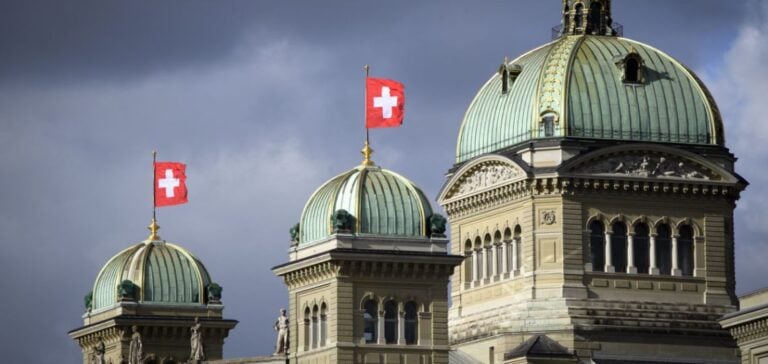The Swiss Federal Council plans to amend the 2018 legislation prohibiting the construction of new nuclear power plants. This initiative aims to ensure energy supply stability as 29% of the national electricity currently generated by four reactors faces gradual reduction by 2033.
A Response to Critical Dependence
The decision addresses two major strategic challenges: Switzerland’s growing reliance on imported electricity during winter and the urgent need to accelerate decarbonization to achieve carbon neutrality by 2050. The military aggression by Russia against Ukraine, which intensified tensions in European energy markets, underscored the risks tied to supply security.
The government seeks to pave the way for additional nuclear capacity to complement renewable energy sources, which remain a priority. However, new nuclear installations will only be considered if no alternative solutions meet the country’s climate goals.
An Aging Nuclear Fleet
Switzerland’s four nuclear reactors are approaching the end of their lifecycle: Beznau 1, operational since 1969, will cease activity in 2033, followed by Beznau 2 in 2032. The Gösgen and Leibstadt facilities, operational since 1979 and 1984 respectively, are not far behind. These closures will significantly reduce domestic electricity production, increasing reliance on imports.
Opposition and Support
The Federal Council’s proposal has sharply divided political and economic stakeholders. The Association of Swiss Electric Companies (AES) and some liberal parties support the initiative, viewing it as essential to address the anticipated rise in national electricity consumption.
Conversely, environmental NGOs, the “Sortons du Nucléaire” Alliance, and several left-leaning parties strongly oppose the move. They highlight that the current law stems from a 2017 referendum where Swiss voters overwhelmingly supported a gradual phase-out of nuclear energy following the Fukushima disaster.
A Determining National Consultation
The government has launched a consultation process involving cantons, political parties, and unions to evaluate this legislative reform. Debates are expected to be intense, as this decision could profoundly redefine Switzerland’s energy policy in the years ahead.
The progression of this legislative initiative will be crucial in determining the role of nuclear energy in Switzerland’s energy mix amid the growing demand for electricity and ongoing energy transition.





















